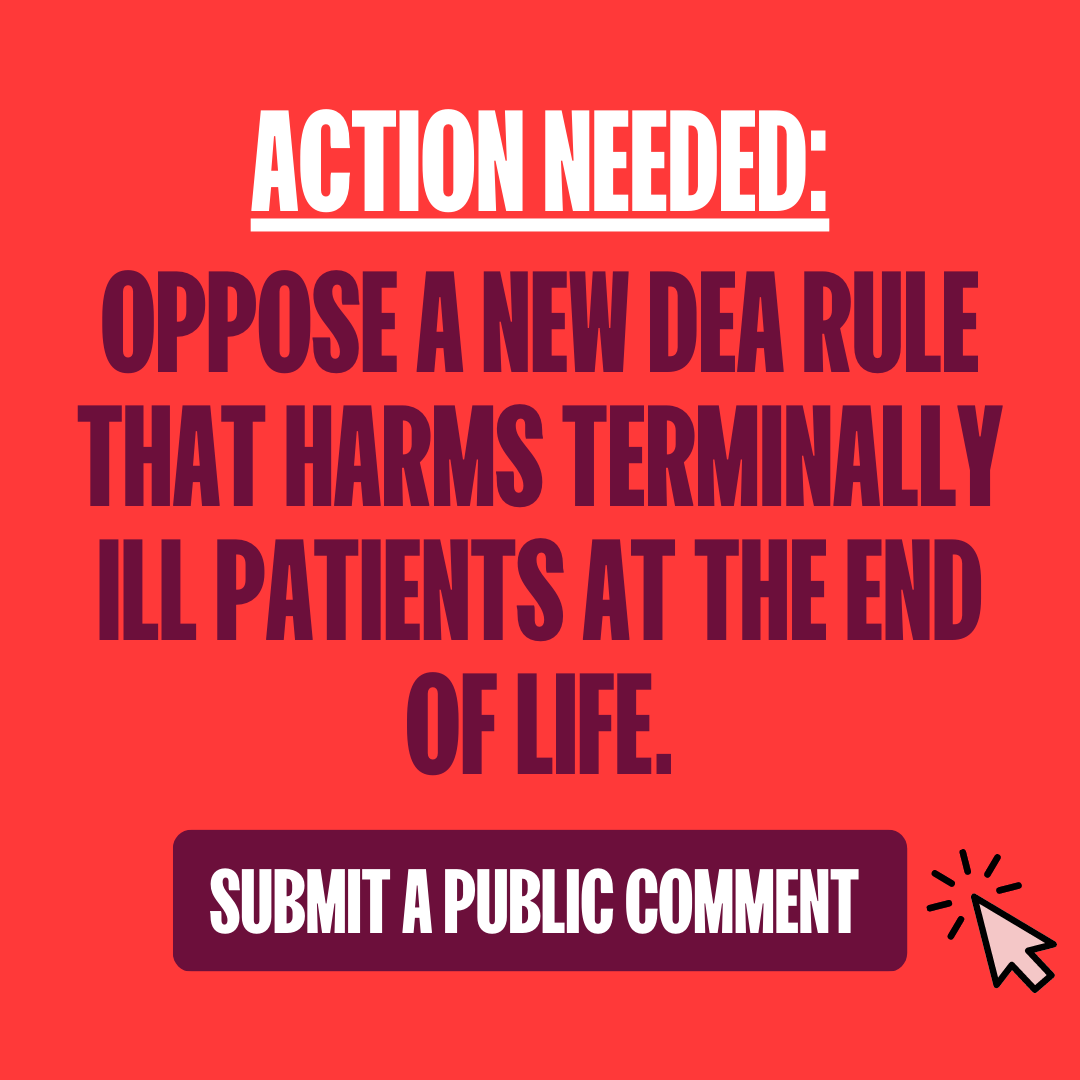I am sure some of you will take issue with my points, but here's my comment:
Thank you for the opportunity to comment on the proposed rule changes.
I would theoretically like to include my name with this reply in order to verify authenticity, but as my comments depend on referring to my personal medical history, I am choosing to maintain my personal privacy and security.
The basis of my concern:
I am a hypogonadal patient receiving hormone therapy from a Medical Doctor via his telehealth practice. I have worked with him for 6 years. He is the best doctor I have ever had.
Before I chose him, I was put on a bad testosterone protocol by a local physician that failed to correct the essential hypogonadism, and created secondary problems. I subsequently searched for another local provider and came up short. I have seen 3 urologists and interviewed multiple men's clinics. None had the required expertise. And since I have been with my telehealth provider I got cancer and several other serious complications that affected my hormones detrimentally. None of these local providers would know a thing about managing hormone therapy with these co-morbidities. My telehealth provider took them all in stride, and my dosage and protocol was adjusted as needed to keep everything in good range through it all. Even with proper testosterone management, I experienced significant muscle wasting/weight loss. Had I not had properly managed testosterone therapy, it is likely I would not have survived. I view my relationship with this doctor as essential to my health, life and very survival.
My critique of the proposed rule changes:
The changes are to instigate further controls to prevent drug abuse. I understand and appreciate that purpose, However, this motive is misplaced and inappropriate in the implementation. The effect is to impair access to thousands of people like me who are not abusing drugs, but have essential medical need. Proportionally this creates more harm than good. There is no valid medical basis for this regarding hormone care.
-I understand the history of the classification anabolic steroids as scheduled substances. There is a fundamental problem lumping them with psychoactive substances under them same enforcement management schemes. You already have parsed different rules in this revision for opiods vs all the rest. That is appropriate. Likewise, further parsing should be done based on the actual medical risk of consequences of abuse. Truly, how many people are overdosing or dying from abusing testosterone sourced through licensed medical telehealth providers?
-If there is actual abuse of steroids taking place by virtue of the telehealth market there have to be better ways to manage this than putting barriers up to every patient who is prescribed testosterone via telehealth. The priorities are disproportional to the harm it will do. Perhaps instead you should focus on identifying fraudulent internet businesses rather than shackle legitimate medical practices.
-At least partly the new rules will backfire. I participate on online medical forums and some discussing this proposal have already stated they will turn to the black market instead of abiding by these changes. Perhaps the Black Market, where the most abuse occurs, is a better place to focus your efforts, rather than interfering with legitimate medical practices.
Cost/accessibility: Most telehealth is not covered by medical insurers so there is already disparity in terms of access to appropriate care. Few can shoulder the burden of increased additional costs due to the simul scheduling requirements in the new rules. The rules will create additional costs due to unnecessary redundancies, and additional medically unnecessary appointments. In some ways this circumstance is discriminatory.
In terms of the purely logistical aspect, I contacted my provider's practice and asked about realistic expectations of simul scheduling between my local provider and them. This is what they said about it "we are prepared and can handle the scheduling and technology components of this rule although the inconvenience will be insurmountable". If the inconvenience of simul scheduling is insurmountable, I will not be able to satisfy this criteria, i.e I will lose this provider. That is a egregious situation that would put my health at risk.
Perhaps my provider's model is appropriate: They already require me to have a yearly physical exam, and submit the documentation. Likewise they require I get updated labs for ongoing adjustments to prescriptions. It is absurd to require my local PCP to participate in this beyond performing and documenting the exam. It is absurd to require him the extra work of simul scheduling and keeping a second set of documentation. The paper trail exists. It is there with the telehealth provider. My chart contains all of these records.
Please do not implement these proposed changes as they are. They are ill conceived. They have no medical basis, provide no medical benefit, are not reasonable, create untenable, unfeasible circumstances for many patients and providers, add to costs, and will interfere with and even sever access to appropriate medical for me and thousands like me for no good reason. Please do not do this.

















